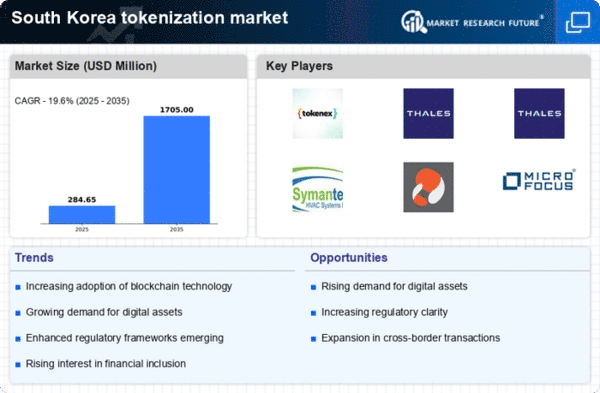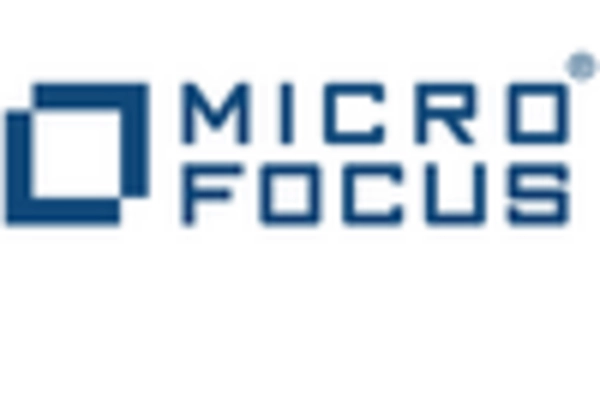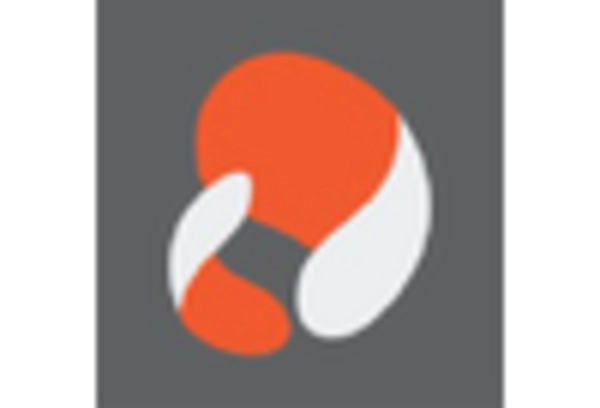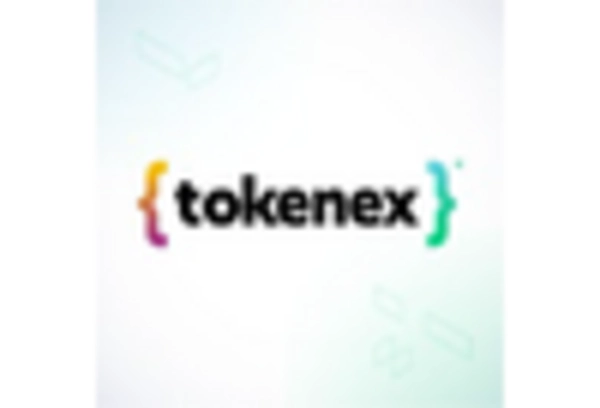Rising E-commerce Activities
The surge in e-commerce activities in South Korea significantly influences the tokenization market. With online shopping becoming increasingly popular, businesses are seeking ways to protect customer payment information. Tokenization serves as a vital tool in this context, allowing merchants to process transactions without exposing sensitive data. In 2025, e-commerce sales in South Korea are expected to reach $100 billion, driving the need for secure payment solutions. As more consumers engage in online transactions, the demand for tokenization services is likely to increase, propelling the growth of the tokenization market.
Supportive Government Initiatives
Government initiatives aimed at promoting digital transformation are playing a crucial role in the tokenization market. In South Korea, the government has introduced policies to encourage the adoption of advanced technologies, including tokenization. These initiatives often include funding for research and development, as well as incentives for businesses to implement secure data management practices. As a result, the tokenization market is likely to benefit from increased investment and innovation. By 2025, government support is expected to contribute to a 30% growth in the adoption of tokenization solutions across various industries, enhancing overall market dynamics.
Growing Demand for Secure Transactions
The increasing need for secure transactions is a primary driver in the tokenization market. As cyber threats evolve, businesses in South Korea are prioritizing data protection. Tokenization offers a method to safeguard sensitive information by replacing it with non-sensitive equivalents. This approach not only enhances security but also helps organizations comply with stringent regulations. In 2025, the market for tokenization solutions in South Korea is projected to grow by approximately 25%, reflecting the rising demand for secure transaction methods. Companies are investing in tokenization technologies to mitigate risks associated with data breaches, thereby fostering growth in the tokenization market.
Integration with Financial Technologies
The integration of tokenization with financial technologies is emerging as a significant driver in the tokenization market. As fintech companies in South Korea innovate and expand their services, the need for secure transaction methods becomes paramount. Tokenization provides a robust framework for protecting sensitive financial data, which is essential for maintaining consumer trust. In 2025, the fintech sector in South Korea is projected to grow by 20%, further fueling the demand for tokenization solutions. This integration not only enhances security but also streamlines payment processes, thereby fostering a more efficient financial ecosystem.
Enhanced Consumer Awareness of Data Privacy
Consumer awareness regarding data privacy is on the rise in South Korea, acting as a catalyst for the tokenization market. As individuals become more informed about their rights and the risks associated with data sharing, they are demanding greater protection for their personal information. This shift in consumer behavior compels businesses to adopt tokenization solutions to ensure compliance with privacy regulations and to build trust with their customers. In 2025, it is estimated that 70% of consumers in South Korea will prioritize data security when choosing service providers, thereby driving the adoption of tokenization technologies in various sectors.
















